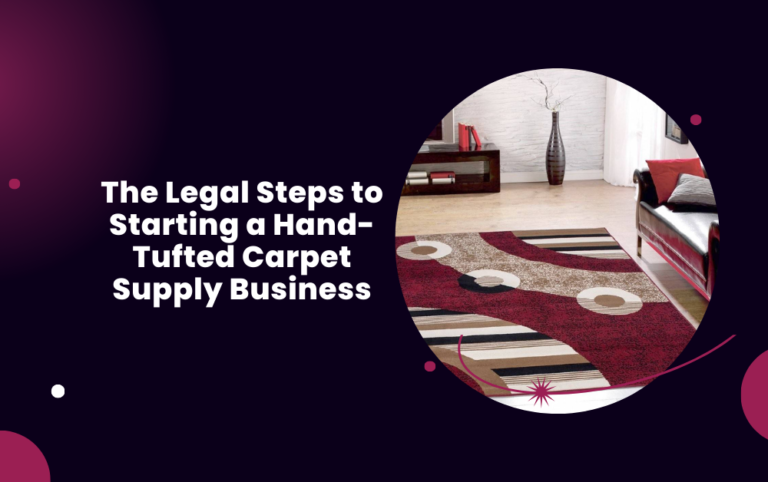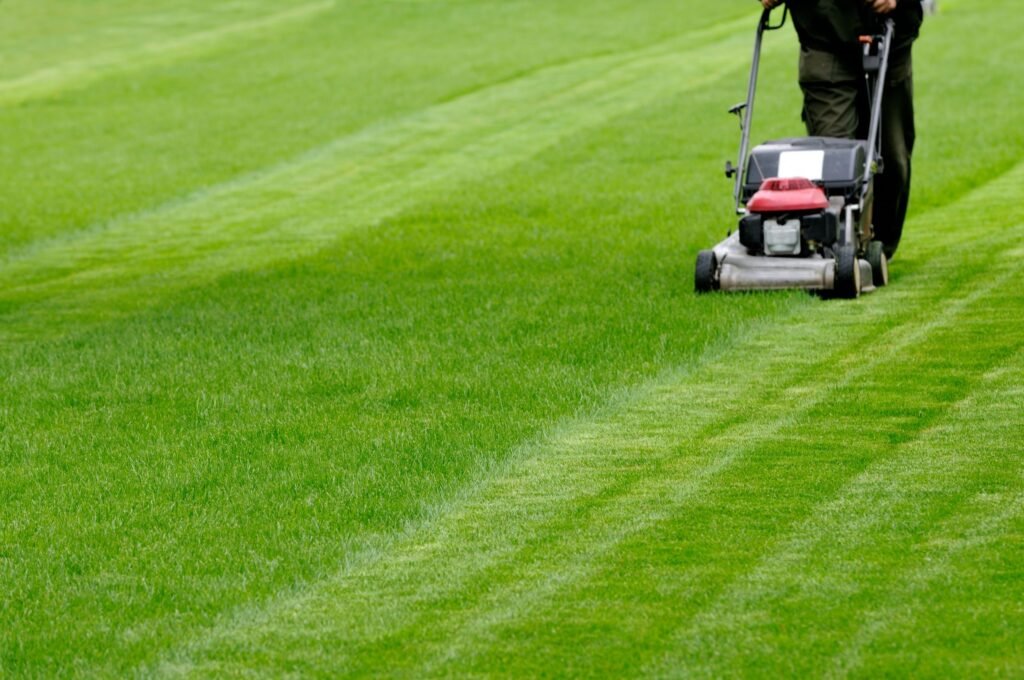Introduction
Venturing into the hand-tufted carpet supply business can be incredibly rewarding, combining artistry with commerce. However, like any business, it comes with its own set of legal challenges and requirements. Ensuring your business is legally compliant from the start is crucial to avoid costly fines, disruptions, or even closure. This article will guide you through the essential legal steps needed to establish business of hand tufted carpet supplier in UAE, from obtaining necessary licenses to understanding industry-specific regulations. By the end of this guide, you will be well-equipped to navigate the legal landscape and start your business on a strong, compliant foundation.
Business Structure and Registration
Choosing the Right Business Structure
The first step in starting your hand-tufted carpet supply business is deciding on the appropriate business structure. The most common structures include sole proprietorship, partnership, limited liability company (LLC), and corporation. Each structure has its own legal implications, tax obligations, and personal liability considerations.
- Sole Proprietorship: This is the simplest form of business structure, where you and the business are legally considered the same entity. While easy to set up, it offers no personal liability protection.
- Partnership: Ideal if you are starting the business with one or more partners. A partnership agreement should outline each partner’s responsibilities and share of profits.
- Limited Liability Company (LLC): This structure offers personal liability protection while allowing flexibility in management and taxation. It is popular among small to medium-sized businesses.
- Corporation: A more complex structure, offering the highest level of personal liability protection and potential tax benefits. However, it involves more regulatory requirements and administrative duties.
Choosing the right structure depends on your specific circumstances, including the size of your business, the number of owners, and your financial goals.
Registering Your Business
Once you have decided on the business structure, the next step is registering your business with the relevant authorities. This process varies depending on your location and the structure you choose. Generally, you will need to register your business name, obtain an employer identification number (EIN) from the IRS (if you are in the United States), and comply with any local registration requirements.
- Business Name Registration: Choose a unique business name and check its availability. Registering your business name protects it legally and allows you to operate under that name.
- Employer Identification Number (EIN): This is required for tax purposes and is necessary for hiring employees and opening a business bank account.
Permits and Licenses
Understanding Local Regulations
Every business must comply with local, state, and federal regulations. For a hand-tufted carpet supply business, this may include general business licenses, sales tax permits, and specific industry-related permits.
- General Business License: Most municipalities require a general business license to operate legally. This ensures that your business complies with local zoning laws and regulations.
- Sales Tax Permit: If you sell products directly to consumers, you will need a sales tax permit to collect and remit sales tax to the state.
- Industry-Specific Permits: Depending on your location and the scope of your business, you may need additional permits related to health and safety, environmental regulations, or import/export requirements.
Environmental and Safety Regulations
Hand-tufted carpet production and supply may involve the use of chemicals and dyes, which are subject to environmental and safety regulations. Ensuring compliance with these regulations is crucial to avoid legal penalties and protect the environment.
- Environmental Permits: You may need permits related to waste disposal, water usage, and air quality control. These permits ensure that your business operations do not harm the environment.
- Safety Regulations: Compliance with Occupational Safety and Health Administration (OSHA) regulations is essential to ensure a safe working environment for your employees. This includes proper handling and storage of materials, as well as ensuring that your workspace meets safety standards.
Intellectual Property Protection
Trademarking Your Brand
Protecting your brand is vital in establishing your identity in the market. Trademarking your business name, logo, and any unique designs or patterns can prevent others from using your intellectual property without permission.
- Trademark Registration: Register your trademarks with the United States Patent and Trademark Office (USPTO) or the relevant authority in your country. This provides legal protection and exclusive rights to use the trademarked items.
Protecting Your Designs
As a hand-tufted carpet supplier, your designs are a crucial part of your business. Protecting these designs ensures that your creative efforts are not exploited by competitors.
- Copyright: Registering your designs with the relevant copyright office protects your original works and gives you the exclusive right to reproduce and sell them.
- Design Patents: If your designs are unique and meet the criteria for patents, consider applying for a design patent. This offers protection for the ornamental aspects of your designs.
Contracts and Agreements
Supplier and Vendor Contracts
Establishing clear contracts with your suppliers and vendors is essential to ensure a smooth supply chain. These contracts should outline the terms of delivery, payment schedules, quality standards, and dispute resolution mechanisms.
- Supplier Contracts: Clearly define the terms of your relationship with suppliers, including delivery schedules, pricing, and quality control measures.
- Vendor Agreements: If you work with retailers or distributors, establish agreements that outline the terms of sale, returns policy, and payment terms.
Employment Contracts
If you plan to hire employees, it is important to have well-drafted employment contracts that outline the terms of employment, job responsibilities, compensation, and termination conditions.

- Employment Agreements: Ensure that your employment contracts comply with labor laws and include provisions for confidentiality, non-compete clauses, and intellectual property rights.
Compliance and Ongoing Legal Requirements
Tax Compliance
Staying compliant with tax regulations is crucial to avoid legal issues and financial penalties. This includes regular filing of income tax, sales tax, and payroll taxes.
- Income Tax: Ensure that you file your business income tax returns on time and maintain accurate records of all financial transactions.
- Sales Tax: Collect and remit sales tax to the relevant authorities, and keep detailed records of all sales and tax payments.
- Payroll Tax: If you have employees, ensure that you withhold and remit payroll taxes, including Social Security, Medicare, and federal income tax.
Annual Reporting and Renewals
Most business licenses and permits require annual renewal. Additionally, you may need to file annual reports with your state’s business regulatory agency.
- Annual Reports: File required annual reports to maintain your business’s good standing with the state. This typically includes information about your business activities, financial status, and ownership structure.
- License Renewals: Keep track of the renewal dates for all your licenses and permits to ensure continuous compliance.
Legal Compliance Audits
Conduct regular legal compliance audits to ensure that your business adheres to all relevant laws and regulations. This helps identify and rectify any potential legal issues before they become problematic.
- Internal Audits: Periodically review your business practices, contracts, and compliance with regulations to ensure legal adherence.
- External Audits: Consider hiring a legal professional to conduct external audits and provide recommendations for improving compliance.
Conclusion
Starting a hand-tufted carpet supply business involves navigating a complex legal landscape, but thorough preparation and understanding of the legal requirements can set you up for success. From choosing the right business structure and obtaining necessary permits to protecting your intellectual property and ensuring ongoing compliance, each step is crucial to building a legally sound business. By following this comprehensive guide, you can address the legal challenges and focus on growing your business, creating beautiful hand-tufted carpets, and satisfying your customers.
Embarking on this venture requires diligence and attention to detail, but with the right legal foundation, your hand-tufted carpet supply business can thrive. Ensure that you stay informed about changes in regulations and continually review your business practices to maintain compliance. With proper legal planning and execution, you can turn your passion for hand-tufted carpets into a successful and reputable business.
Note :- To Read More Articles Visit on- postsisland



